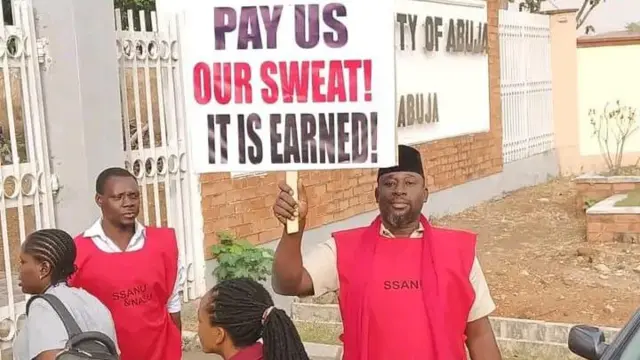Nigeria’s university system faces fresh disruption as the Senior Staff Association of Nigerian Universities (SSANU) and the Non-Academic Staff Union of Educational and Associated Institutions (NASU) have declared a nationwide protest for Thursday.
The unions, operating under the Joint Action Committee (JAC), directed their branches across the country to hold emergency congresses on Wednesday to mobilise members for the one-day demonstration.
Their decision followed a review of government actions at JAC’s October 6 meeting, where it was concluded that several long-standing issues remained unresolved despite multiple ultimatums.
JAC had earlier given the government a seven-day ultimatum on September 15, later extended by 14 days, which expired on October 6 without any progress.
The unions said the Thursday protest would feature marches, placards, and press briefings in major university towns nationwide.
Demands Driving the Protests
Among their grievances are the alleged unfair sharing of the ₦50 billion earned allowances, delays in renegotiating the 2009 FGN/NASU/SSANU agreements, non-payment of two months’ withheld salaries, arrears of 25% and 35% salary increments, and non-remittance of third-party deductions for May and June 2022.
In a circular titled “Commencement of Protest Actions” and jointly signed by NASU General Secretary Prince Peters Adeyemi and SSANU President Mohammed Ibrahim, JAC instructed all branches to ensure total compliance and participation.
“Despite the extension of our ultimatum, our demands remain unresolved,” the circular read. “Branch leadership is therefore directed to convene a joint congress on Wednesday to mobilise for a massive and effective protest on Thursday.”
Mohammed Ibrahim, SSANU’s president, accused the government of insincerity and warned that the unions were ready for a more prolonged action if ignored.
“Ours will not be the mother of all strikes; it will be the grandfather of all strikes,” he said. “When SSANU or NASU strikes, you know what it means. We must take our destinies in our hands.”
He lamented that non-academic university workers were “the worst hit financially, economically, and psychologically,” and warned that continued neglect would deepen the crisis in Nigeria’s higher education system.
Rate, Like 👍, Comment 💬, Share this article, Follow us on our social media handles, and Submit your own story to get featured and earn rewards!








